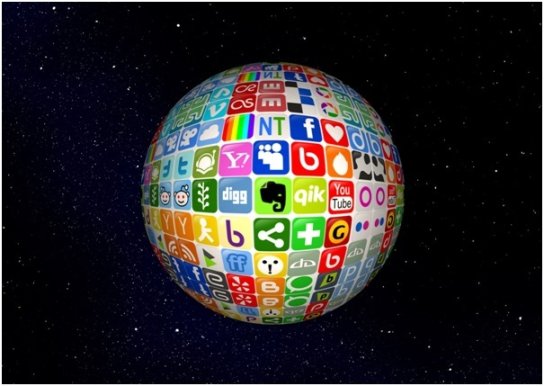Right now, Americans are divided on their feelings on modern politics. Some think it’s the best time to be alive and that the political climate is thrilling. Others think it’s horrible and wish they could look away.
What is the right answer? Are we living through remarkable or dark times?
Both sides might have a point. The advent of modern technology is molding politics into a new form. At the center of it all is social media, which plays a huge role in modern American partisan politics.
But what roles does social media play exactly? Read on to find out.

Table of Contents
Spreading Political Awareness
Social media has been an great gateway to expose people to new ideas and beliefs that can pertain to their political interests. Sites like Facebook, Twitter, and Instagram are effective platforms for sharing news. They catch people up on the latest political events.
For example, social media platforms draw attention to particular topics or events. They make it easy for people to consume information through user-friendly interfaces.
People can also post articles, videos, and analyses of current events, which others can share with larger groups of people. This way, people can keep each other informed of what is happening. They encourage one another to get engaged in politics.
Engage Voters
Social media has become an increasingly important tool for engaging voters. By allowing users to interact with each other, it has opened up a platform for large-scale conversations. People can talk about current events and politics with different types of people.
Candidates and political organizations can post information about their platforms. They can host online events and spark discussions on issues. Through this process, more citizens become more motivated to take part in the political process.
Ultimately, social media has had a profound influence on how candidates engage with voters. It empowers citizens to make their voices heard by American politicians.
Connecting Voters
Social media has made it easy for anyone to start community-led political movements. This is because platforms provide users the ability to invite participation and bring awareness to their cause. Users can also post information, mobilize supporters, provide accounts, and hold public discussions.
By using social media, people can organize protests, demand change, and advocate for change from all levels of government. This has helped to create a strong sense of solidarity and shared purpose among individuals. It has also enabled coordinated and effective campaigns to fight for justice.
Social media activism has become an integral part of our political discourse. It has increased the power of communities to lobby for change at a local, regional, and global level.
Battlegrounds of Partisan Debate
Political discourse has become increasingly partisan on social media. Individuals are taking to their social media accounts to express their views on various subjects.
This has led to a highly charged political environment. Those from different backgrounds and perspectives are always pitted against each other.
Debates on social media are often characterized by intense emotion and aggressive rhetoric. This is because people become increasingly entrenched in their positions. Issues become polarizing when debated on social media, which further encourages a partisan divide.
All this leads to a charged atmosphere. Partisanship in American democracy is emphasized, and civil discourse is often neglected.
Manipulate Public Opinion
It is so easy to create and spread false news on social media. So, with platforms like Facebook, Twitter, and Instagram, bad actors can sway opinions with false or exaggerated stories. They often target vulnerable groups, such as the elderly and the young, amplifying their messages for maximum reach.
Social media is also used to spread propaganda, target opinion leaders, and shape public opinion. Weaponized artificial intelligence can amplify controversial content, bringing volume to otherwise unheard voices. This helps shape public opinion into political polarization and sway political decisions.
While social media can be empowering, nobody should underestimate its potential for manipulation. People should be wary of who and what they see and believe online.
Echo Chamber
Users tend to follow accounts that match their beliefs and then get inundated with like-minded opinions. This creates a “bubble” of beliefs, and users often don’t interact or engage with opinions that differ from their own. This is not only limited to political views, but it can extend to popular topics and opinions.
The problem with this is that it polarizes people and limits the flow of ideas and opinions, creating a false sense of “truth”. By exposing people to only their own opinions, it is more difficult for users to realize there are other views.
By creating a siloed environment, users often are unwilling to accept alternative views. This can lead to further partisan divide and antagonism. Rather than fostering open dialogue and meaningful conversations, there is no growth in discourse.
An open dialogue is necessary to balance out extreme opinions. It is the key to making sure all sides feel valued and heard.
Microcosms of the US Political Divide
Social media has become a microcosm of the US political divide. This is due to its ability to quickly spread messages, memes, and videos. More and more, people have the ease to access news and information that share only one-sided narratives.
Social media gives people the tools to share their views and opinions with a large audience without much verification. This can lead to deep-seated tribalism, where true discourse and mutual understanding are all but lost.
Different platforms have also given rise to movements on edge-pushing conspiracy theorists. These theories further polarize the country.
All these elements can lead to an artificial, distorted reality. What may appear like small details can be magnified and exaggerated. People with the intention of malice can create false impressions and further divide the US politically.
Social Media Is in the Heart of American Partisan Politics
Social media has significantly reshaped American partisan politics. Its impact can be seen in voter mobilizations, policy advocacy, and voter engagement.
Going forward, understanding how to effectively use social media in American partisan politics is a key to success. Take action now to educate yourself and stay informed about politics and social media!
Did you find this article helpful? If so, check out the rest of our site for more.



